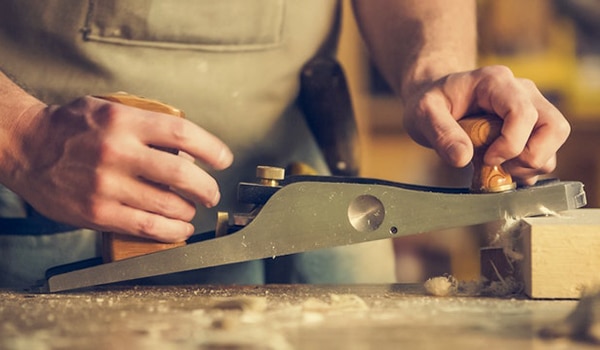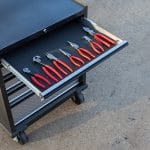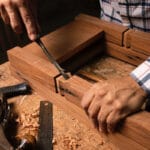Last updated: 30 Apr 2023
If you have recently received new woodworking tools as a gift, you might be searching for beginner-friendly woodworking ideas to try out. It’s important to approach woodworking with a step-by-step mindset, gradually building up your skills and knowledge as you complete more projects. Patience and practice are key, and the more experience you gain, the easier it will become to take on more complex projects. With dedication and a willingness to learn, you can develop your skills and create beautiful pieces of woodworking art.

1. Start small, bite-sized woodworking ideas
You do not want to start new woodworking ideas with a highly complex building like a house or intricate furniture. You will only become frustrated and impatient with the results. You may want to consider trying your hand at making a gift for a loved one or friend. Woodworking ideas for a birdhouse, toolbox, planter, trivet, or bookends are great ideas for easy projects that will build your skill and you can give proudly as gifts.
2. Move on to more intermediate woodworking ideas once you get the hang of the simple plans
Once you are comfortable with your tools and your easier projects get finished quickly and with minimal frustration, you are ready to move on to something a little more complex. This would be a good time to search for woodworking ideas for a table or bookshelves. If you happen to make a mistake, often it isn’t that big of a deal. You can use them for temporary tabletop space or storage space in your shop until you can replace them with a better build.
3. Wow, your family and friends with your more advanced skills
Once you are comfortable taking on these more advanced woodworking ideas and you have built up your tool collection, it is time for you to show off your skills. Find some woodworking ideas that give step-by-step instructions on building furniture pieces or perhaps a small playhouse for your kids you can construct in the backyard.
Younger kids will be ecstatic with a playhouse. You might even start by designing and making furniture for the playhouse first, just to break yourself in. If you make slight errors on play furniture it won’t be as disastrous as making an error on your expensive teakwood dining room buffet.
Like any other skill, woodworking requires time and practice to master. Taking the time to enjoy smaller projects and working your way up to more complex ones will allow you to learn new skills and gain the confidence needed to complete more difficult tasks. With each project you complete, you’ll gain new insights and develop a better understanding of woodworking principles and techniques. So don’t be discouraged if you encounter difficulties along the way, as these are all part of the learning process.




Leave a Reply